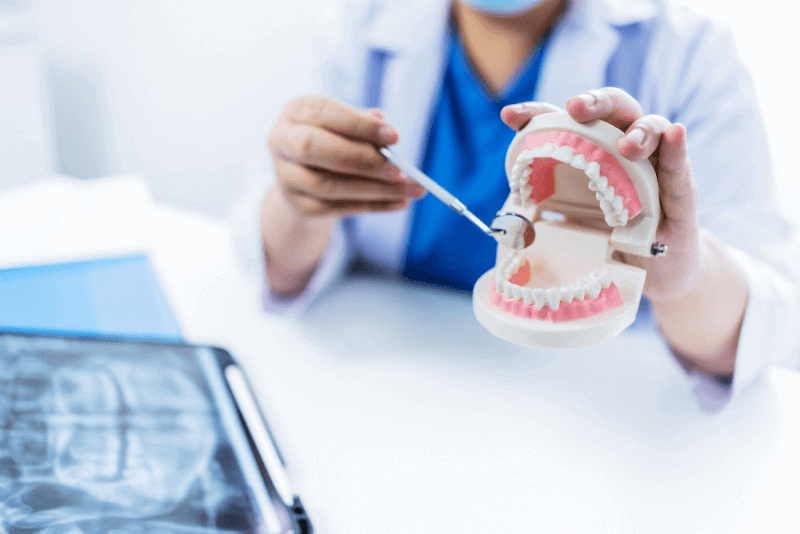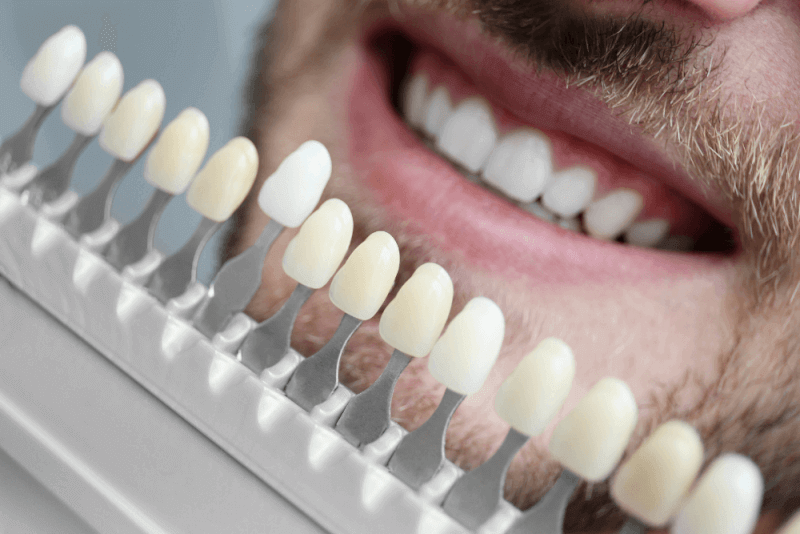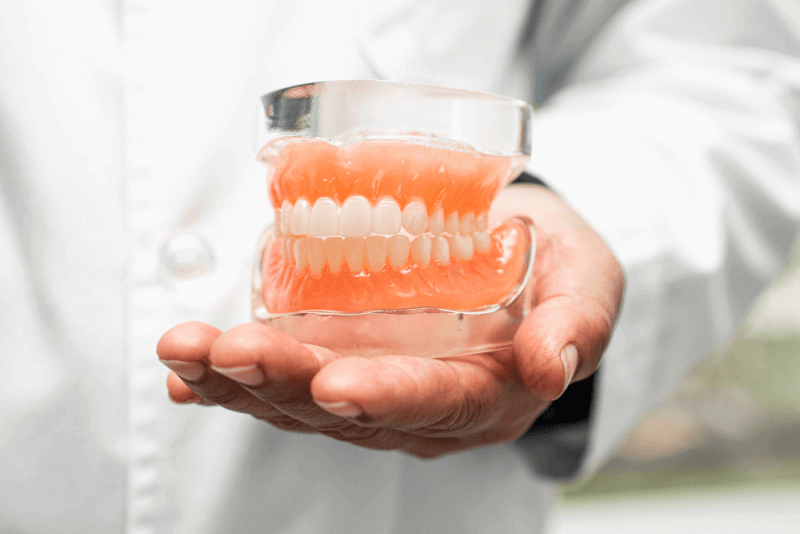What is Jaw Surgery?
Jaw surgery is a surgical operation aimed at correcting structural abnormalities in the jaw, either congenital or caused by various factors, affecting the lower or upper jaw. This surgery is performed on individuals who experience functional impairment, difficulty in daily life, or dissatisfaction with the aesthetics of their jaw.
By addressing the abnormalities in the jaw, jaw surgery helps individuals return to a higher quality of life. In some patients, structural abnormalities in the jaw can interfere with routine functions such as eating, drinking, and speaking. These disruptions can also lead to deficiencies in certain chemical processes within the body.
How is Jaw Surgery Performed?
Jaw surgery is a lengthy and complex procedure. Before the surgery, a detailed physical examination and thorough testing of the patient are necessary. If there is an issue with only one of the jaws, lower or upper, single jaw surgery is performed. If both jaws are problematic, double jaw surgery is conducted.
The jawbone is cut at the designated point, and the appropriate procedure is performed based on the specific condition of the jaw. Depending on the issue, the procedure may involve adding, removing, or reshaping bone. Materials like screws, wires, and plates may be used as needed during the surgery.
Methods of Jaw Surgery
Certain structural problems may be present in the jaw. In such cases, jaw surgery is performed to anatomically correct the jaw.
- Jaw surgery
- Chin aesthetic surgery
- Jaw contouring
- Fat injection into the jaw
- Orthodontic surgeries, among various other methods, are performed depending on the specific complaint.
Complications of Jaw Surgery
The complications of jaw surgery can vary depending on the patient’s specific issues and the surgical method chosen. However, as with any surgery, complications may arise.
- Swelling
- Bruising
- Loss of sensation
- Redness on the face
- Tooth loss
- Pain
Why is Jaw Surgery Performed?
Jaw surgery is performed to address problems in the lower or upper jaw, or both, whether caused by congenital issues or due to trauma or accidents.
- Structural abnormalities of the jaw
- Biting and chewing problems
- General oral issues
- Aesthetic concerns, among other factors, are taken into account when performing jaw surgery.
When is Jaw Surgery Performed?
Jaw surgery is typically performed in the following situations;
- When the jaw is significantly too far forward or backward
- When there is a noticeable asymmetry in the jaw
- When the jaw is too narrow or wide
- When the front teeth do not close
- When there is excessive gum exposure
- When the chin is excessively prominent or too recessed
- When there is excessive gum exposure during smiling
- When biting, tearing, and other physiological functions cannot be performed
- When trauma has caused structural abnormalities in the jaw, jaw surgery is performed.
Who is Suitable for Jaw Surgery?
Jaw surgery is typically performed after the age of 18 unless there is a congenital or trauma-related problem. The human body’s anatomical structure is fully developed by the age of 18, which is why jaw surgery is generally recommended for those over 18 unless there is an emergency.
- Individuals with structural abnormalities in the lower or upper jaw,
- Individuals with congenital jaw anomalies,
- Individuals with jaw damage due to trauma,
- Individuals with speech disorders and chewing problems,
- Individuals with a protruding lower jaw,
- Individuals with a recessed lower jaw,
- Individuals with an asymmetrical jaw appearance are suitable candidates for jaw surgery.
Jaw Surgery in Children
Jaw surgery in children is usually preferred in cases of congenital jaw problems that affect the child’s life, such as eating disorders or speech issues.
Jaw Surgery in the Elderly
Jaw surgery in the elderly is planned according to the individual’s other health conditions and past problems. As age progresses, jaw problems can arise due to issues with the bones and teeth. Jaw surgery is also performed in the elderly based on the individual’s specific needs.
Types of Jaw Surgery
Jaw surgeries can vary depending on the problems in the lower or upper jaw. One of the most common jaw problems in our country is an excessively protruding lower jaw. The appropriate surgery is determined based on a physical examination of the patient.
Upper Jaw Surgery
Upper jaw surgery is performed to correct abnormalities in the upper jaw. The most common issue in the upper jaw is its recessed position. The upper jaw may underdevelop and create an asymmetrical appearance. Jaw asymmetries can lead to feeding and speech problems. Upper jaw surgery corrects these shape abnormalities.
Lower Jaw Surgery
Lower jaw surgery is typically performed when orthodontic treatments alone are insufficient. It can be used in addition to treatments that correct the teeth. A protruding lower jaw is a common condition, and other abnormalities in the jaw can also be corrected with lower jaw surgery.
What are the Benefits of Jaw Surgery?
Jaw surgery is a crucial operation for improving individuals' quality of life. Jaw problems, whether congenital or trauma-induced, can cause significant difficulties for individuals. Jaw surgery is a beneficial method to eliminate these difficulties.
- Problems in the upper respiratory tract caused by certain upper jaw anomalies are corrected.
- Breathing issues, such as sleep apnea or snoring, are resolved.
- Problems during eating due to jaw-related issues are permanently solved.
- Speech problems caused by structural jaw issues are eliminated.
- The appearance of the gums and teeth during smiling is improved.
- Jaw pain and tooth fractures are prevented.
Pre-Surgery Considerations for Jaw Surgery
- A personalized treatment plan is prepared before jaw surgery. The surgery is performed according to the specific issue with the patient’s jaw.
- Any known medical history should be shared with the doctor.
- Medications prescribed by the doctor should be taken, and any medications that need to be discontinued should be stopped.
- If there is a history of any drug or other allergies, the doctor should be informed.
Post-Surgery Considerations for Jaw Surgery
- Post-surgery, eating and drinking should only begin based on the doctor’s instructions. No food or drink should be consumed before the doctor’s specified time.
- After the surgery, it is generally recommended to consume mostly liquid and soft foods. Extremely cold or hot, excessively acidic, and spicy foods should be avoided.
- Products like cigarettes or alcohol, which can cause infections, should not be consumed after surgery.
- Post-surgery pain may occur, and in such cases, painkillers prescribed by the doctor should be used.
- If dressing is required for the surgical area, it should be done regularly.
- In case of bleeding, excessive pain, or other complications after the surgery, a doctor should be consulted immediately.
Recovery Process of Jaw Surgery
The recovery process after jaw surgery varies from person to person and depends on different factors. The recovery period typically ranges between 2 weeks and 1 month. The procedure performed on the jaw and the patient’s post-surgery care are crucial to the recovery process.
Jaw Surgery and Nutrition
After jaw surgery, specific dietary considerations are recommended by the doctor. It may be more beneficial for the jaw’s healing process to use a straw for a period after the surgery.
It is generally recommended to consume soft and liquid foods in the diet. Avoiding cigarettes, alcohol, highly spicy or acidic foods, and consuming small meals are also important considerations.
What are the Risks of Jaw Surgery?
As with any surgery, there is a risk of infection in jaw surgery. Other potential risks include:
- Bruising at the surgical site,
- Redness,
- Loss of sensation,
- Tooth loss,
- Bleeding can occur.







